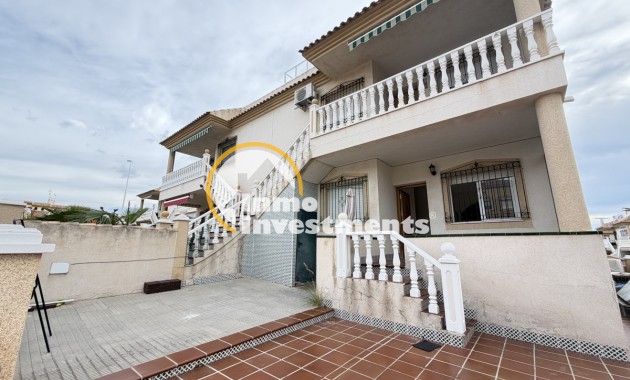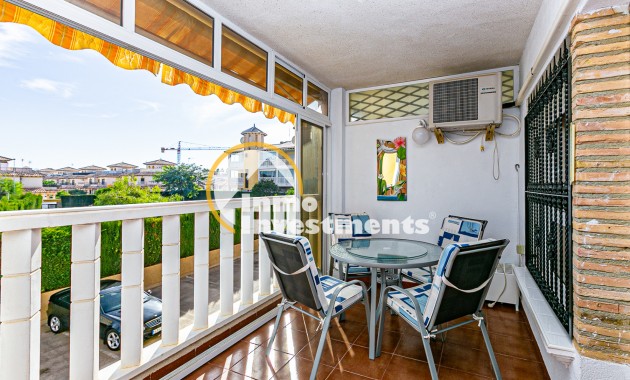Inheritance tax in Spain, exemptions and deductions

Spanish inheritance tax rates and an overview of exemptions and deductions in Costa Blanca
Inheritance tax in Spain applies to everyone, both residents and non-residents. Known as "Impuesto de sucesiones y donaciones", the tax becomes payable upon receipt of an inheritance from a friend or relative – whether this is property, money, or any other tangible asset.
Understanding Spanish inheritance tax laws is essential when real estate is involved. In this guide, we explain the tax implications in the Costa Blanca, including regional tax reductions, exemptions, and the rebates available in the Valencian Community.
Inheritance tax in Spain is a national tax, but it's regulated independently by each autonomous community. The Valencian Community has established its own inheritance and gift tax framework.
The regulations, specifically Spanish laws 13/1997, 26/2014 and 06/2023, detail the main provisions relating to inheritance tax.
The Valencian tax system offers a comprehensive range of reductions and exemptions designed to minimize the tax burden on inheritors, particularly for close family members and vulnerable groups. The amount of tax payable varies based on:
- The value of the inherited estate (property, assets, or money)
- The heir's relationship to the deceased
- The heir's residency status
- Any applicable regional deductions and tax rebates
In Spain, beneficiaries are responsible for paying the tax, and rates can differ widely between regions so local advice is essential.

Inheritance tax reductions and exemptions in the Costa Blanca
The Valencian Community (covering Alicante, Valencia, and Castellón) offers some of the most favourable inheritance tax reliefs in Spain, particularly for close family members. If you own property here or you are inheriting property in the Costa Blanca, here's what you need to know.
Personal Allowances Based on Relationship: The Valencian government provides significant tax-free thresholds based on your relationship to the deceased:
- Group I: Children under 21 (including adopted children) - €100,000 + €8,000 per year under 21 (upto a maximum €156,000)
- Group II: Children over 21, spouses, and parents - €100,000
- Group III: Close relatives such as brothers and sisters, aunts and uncles, or grandparents - €8,000
- Group IV: Distant relatives - no reduction
Primary Residence Deductions: Heirs may qualify for a 95% reduction on the value of the family home, up to €150,000 per heir, if:
- The property was the deceased's main residence
- The heir is a spouse, child, parent, or sibling over 65
- The heir keeps the property for at least five years

Inheritance tax rates in the Valencian Community
Spanish inheritance tax rates are progressive, ranging from 7.65% to 34%, depending on the amount inherited. However, in the Costa Blanca, there are generous rebates that reduce the tax burden dramatically for close relatives:
- 50% rebate for spouses, children, and parents (groups I & II)
- 75% rebate for heirs under 21 years old
Deductions are the amount you would be taxed reduced by a set percentage before applying the rate of tax. For example, if you have inherited €100,000 and are entitled to a deduction of 95%, this means you will pay tax at whatever rate applies to you - on €5,000 only.
Rebates are applied to the amount of tax you have to pay. For instance, if after applying any deductions you have to pay €1000 in inheritance tax, and you are entitled to a rebate of 95%, this would mean you would have to pay €50.
Let's say you're inheriting your late mother's property in Alicante Province valued at €250,000. You are over 21 and plan to keep the home for at least five years.
1. Relationship Reduction:
€100,000 deduction (Group II – child).
2. Primary Residence Deduction:
95% of remaining €150,000 = €142,500 deduction.
3. Taxable base:
€250,000 - €100,000 - €142,500 = €7,500.
4. Tax calculation (approx. 9% on €7,500):
Tax due = €675.
5. Rebate (50%):
Final amount to pay = €337.50.

How to reduce the inheritance tax burden
Thanks to changes following EU court rulings, EU and EEA residents now have access to regional tax benefits, including those offered by Valencia. However, non-EU citizens may not benefit from regional deductions and could face higher tax liabilities. However in all cases:
You must file inheritance tax within 6 months of the date of death (with a possible 6-month extension).
- Property must be professionally valued at the time of inheritance
- Both residents and non-residents must pay inheritance tax on Spanish property
A common strategy to avoid inheritance tax in Spain is to transfer assets as gifts during your lifetime. Spain's gift tax (Impuesto sobre Donaciones) can be significantly lower than inheritance tax, especially if you take advantage of the exemptions and tax reductions.
Careful planning, such as timing the transfer and consulting a tax advisor, ensures compliance with Spanish tax laws while minimising the overall tax burden.
Whether you're purchasing a holiday home or inheriting real estate, understanding Spanish inheritance tax is vital. We specialise in helping international property owners and their family members navigate the legal and tax processes of owning or inheriting a home in Spain.
Contact us for expert support in real estate transactions and inheritance matters in the Costa Blanca.









 Previous
Previous 
















